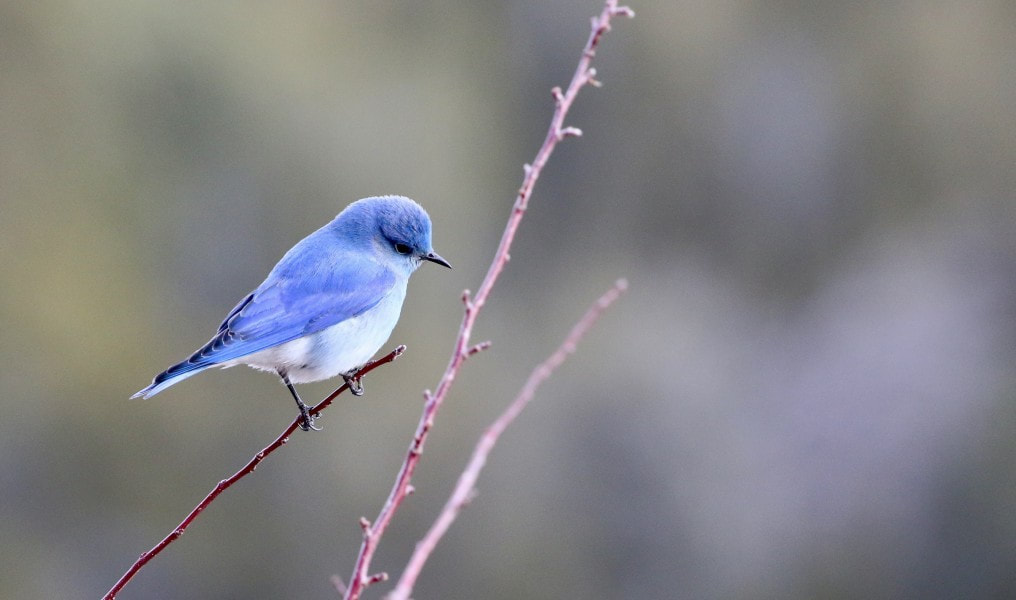|
Language and its use are ever evolving. The spoken word shapes meaning through vocal prosody in addition to word choice, order, and context. The spoken word, also, frequently has an interlocutor with whom immediate or swift repair can be made if misunderstandings occur. The written word doesn’t have access to the same support. It’s a different medium, requiring different care. ‘A clear sentence is no accident’ (Zinsser, 1976). Rather, it is a deliberate choice, and not necessarily easy to construct. Part of sentence construction relies heavily on word selection. Research is replete with unfamiliar terms for those outside or new to distinct disciplines. Further, there can be conflicting use of terms in the literature. When writing, we ourselves might use terminology unfamiliar to readers, or terminology for which they may have an understanding that differs from more specialist usage. Feedback on written work can often include requests for ‘clarity’. Sometimes feedback can indicate that intention isn’t simply unclear but actively misleading. Defining terms is vital to mitigating this. The act of naming can feel intimidating. ‘How do I know? I’m just learning,’ we might think. We could feel vulnerable discussing contention around the varying usage of ‘head voice’, ‘thin folds’, ‘M2’, ‘falsetto’; vulnerable in choosing to align ourselves with one term, particularly. Or we may feel unqualified to discuss ‘anxiety’, ‘stage fright’, ‘nerves’, the white room’. To assuage these discomforts, I’d like to consider the word ‘essay’ – reasons for which will, I hope, become clear. Every module on our Masters programme involves writing an essay. It is variously described as the ‘written element’, ‘paper’, ‘report’, ‘assignment’, ‘review’. The word ‘essay’ often refers to educational tests and academic work of non-fiction. However, its origins lie in the Old French meaning to ‘trial, attempt, essay’, and Late Latin meaning a weighing up, driving out and examination. The essay is a discursive piece, an enquiry. Often it is at its best when considering a dilemma – a problem to which there is no single solution – wherein a knotty topic must be unravelled so far as it can and a decision made as to what resolution might be most beneficial in given circumstances. This idea of “attempting” with the essay takes away some concerns about getting it “right”. It leaves me reassured that, when I write, I am trying, I am essaying. I am moving forward, rather than seeking an end. I can use my newfound understanding of the essay as a concept to engage more productively with the writing. So, if essays are attempts at working out, and if my development (change and progress) requires discovery of something new to me, it is likely that through making these attempts – these “essays” – some of the uncomfortable sensations noted above (fear of getting it wrong, feeling not up to the task, for example) will lessen or shift as I evolve with my learning. My evolution will come through making the essay. In defining ‘essay’, I have given myself the knowledge and permission to disregard the notion that writing an essay means to be tested. Instead, I can participate actively in the testing of thoughts and ideas that will lead to new outcomes for me. I can make the learning about my progression. To define is to specify, state the significance of, determine with precision. Defining delimits an area for consideration. It doesn’t deny other areas exist; it directs focus more specifically. If you are clear about the meaning of your terms, if you have defined terms as you intend to use them, you give yourself a perspective on the broad horizon of your topic while also plotting precise coordinates for both you and your reader to follow. You give your discussion a supporting framework and container in which its potency can manifest and not become diffuse and difficult to see. If all essays are an attempt, then all essay writing is growth – growth of knowledge, growth of critical skills in writing and thinking. Some of this growth might be visible; some invisible, as with the roots of plants. But all is evolution and development. Try to hold this in mind, particularly when you encounter struggles in or with your work. We are all limited in knowledge; examining our words more deeply and choosing them most carefully will only ever increase this, and will support better understanding in and of ourselves and clearer communication with others. References
Anon., n.d. Online Etymology Dictionary. [Online] Available at: https://www.etymonline.com/word/essay [Accessed 20 September 2023]. Bach, K., 1994. Conversational Impliciture. Mind & Language, pp. 124-162. Baxter Magolda, M.B., & King, P.M. (2007). Interview Strategies for Assessing Self-Authorship: Constructing Conversations to Assess Meaning Making. Journal of College Student Development 48(5), 491-508. doi:10.1353/csd.2007.0055. Merchant, G. (2001), Teenagers in cyberspace: an investigation of language use and language change in internet chatrooms. Journal of Research in Reading, 24: 293-306. https://doi.org/10.1111/1467-9817.00150 Pennebaker, J. W., & Stone, L. D. (2003). Words of wisdom: Language use over the life span. Journal of Personality and Social Psychology, 85(2), 291–301. https://doi.org/10.1037/0022-3514.85.2.291 Steinhauer, K., Friederici, A.D. Prosodic Boundaries, Comma Rules, and Brain Responses: The Closure Positive Shift in ERPs as a Universal Marker for Prosodic Phrasing in Listeners and Readers. J Psycholinguist Res 30, 267–295 (2001). https://doi.org/10.1023/A:1010443001646 Zinsser, W., 1976. On Writing Well: The Classic Guide to Writing Nonfiction. New York: Harper Perennial.
1 Comment
How To... Find Your Voice: finding connection, release and confidence.How To... Find Your Voice is a guide to (re)connecting with the sound you make, finding confidence in who you are through your voice.
Voice is so complex, a system of body, mind, experience, emotion, feeling, breath, intention. It's our most versatile communcative tool - it goes round corners, travels upstairs, and isn't blocked by the dark. We understand the minutiae of other's tones, the nuance of their breathing patterns. We hear joy, rage, sorrow, confusion. And all this with or without talk, the language of which can clarify, obscure, and deepen meaning and communication, can make us think and feel, can guide and comfort, perplex and destroy. Sticks, stones and names can all hurt, very much. If you feel you've lost your voice, can't find it, don't know what it was to begin with, I hope my guide will offer some ways in which to begin to find ease and confidence in your vocal expression. Your voice is your story. On a personal note, am utterly thrilled to have had an article published by Psyche.co. I've been a reader and admirer of their thought pieces, essays and guides for years so this feels like such an honour - such a celebration of my voice. Editor Christian Jarrett performed magic, helping me craft books of ideas into this beautiful guide. Let me know what you think. Voice is a combination of physiological subsystems; controlled and determined by several interacting regions of the brain; and is a ‘psychosocial purveyor of meaning and character’.
Voice is noun, action and metaphor. It is physical, neurological, emotional and psychological. (Herbst, 2016; Dicther, et al., 2018; Zhang, 2016) Last week I was in New York to participate in 'Risk! A Climate Cabaret', which takes a light-hearted but poignant look at climate change and financial risk. It follows the success of 'The Financial Follies', which took a wry look at the devastating impact of the subprime mortgage crisis. No, not a jot of this is light material; yes, it's worthy of drama, and my-oh-my does it give great running to Satire.
My participation dates back to 2016, when I first met the indomitable Professor Janis Sarra through the equally determined academic, director and writer Dr Helen Eastman. The week in New York saw Professor Sarra delivering her paper at the United Nations Commission on Trade Law. She was fronting the Canadian Delegation in Working Group V: Invsolvency Law, discussing asset tracing and recovery and considerations for further work. This is in pursuit of a mandate to further the progressive harmonization and modernization of the law of international trade. We'd been for pizza the night before. Life can be wonderful. Since 2016, we've toured venues and conferences around the globe, gathering conversation and debate, working towards sustainable, just and urgent change. The cabaret was performed at the beautiful Scandinavia House on Park Avenue, with music played on nothing less than comedian-conductor-pianist Victor Borge's baby Steinway. It was written and performed by brilliant MD-Composer Alex Silverman. Performed by UK-based ensemble @live.canon and volunteer scholars, the event was co-hosted by Canada Climate Law Initiative | L'initiative canadienne de droit climatique, Live Canon, Allard School of Law, St John's University School of Law and the Center For Urban Environmental Reform. Climate change is emerging as a serious financial risk. Scientists report that global warming poses an existential threat to humanity and to the planet. Bank regulators advise that absent new risk management strategies, a financial crisis due to climate change could be even more severe than the 2008 global financial crisis. At the same time, a just transition to net-zero offers tremendous economic opportunities. With thanks to @voicestudycentre for their vital support. #vocalcoaching #songanddance #research #reparation #justtransition #cabaret #conversation #hope Today is 16th April, 2023, and World Voice Day. Voice is a construct. It happens in the brain and the body. It's physical and psychological; motivational and emotional. A psychosocial indicator of who we are; or of who people think we are.
Voice is power. To be without voice, to lose your voice, is to lack the fundamental right to be heard. To be uncertain of your voice is to stand on shaky ground. Sometimes our voice resonates freely, with ease, and we've found the centre of the river, a sense of flow. Sometimes our voice jars, sticks in our throat, is caught up in the rapids or shallows of our emotions. Those with voice aren't always right. They who shout the loudest, whether by volume in decibels or numbers, are often too noisy for others to truly engage with – but they can drown out the few, the quiet, the thoughtful. Voice needs tending. The intricacy of the muscles that enable us to make sound, is extraordinary. The delicacy of our vocal folds and the variety of expression they are capable of, are extraordinary. The delicacy and variety of our characters, personalities, likes and dislikes, are extraordinary. Few are actually tone deaf, but the number of people who claim to be so as they shy away from the sound they make is saddening. The number of people who are afraid to speak their mind, because we live in a world of ever-decreasing nuance where to feel certain is to feign security, is saddening. The number of people who are determined to speak their need for certainty, because to claim knowledge is power, is saddening. On this World Voice Day, 2023, try to take a moment to consider yours. Is it tired and needs rest? Does it need a drink, whether water for your body or nourishment for your soul? Do you know yours? Do you use yours? Or do you cloak it with a lowered pitch, a pressed sound, or any other costume you think will help you navigate your current situation? Like our feet, our voice is often neglected. Yet, like our feet, our voice carries us throughout life, connects us to the world and those surrounding us. Voice is the most complex of our communicatory tools: verbal and non-verbal; linguistic and emotional. There are known to be at least 24 emotions contained in vocal bursts (the sounds we make without words – sighs and groans, oo's and ah's) alone. Listen to the sounds of others; enjoy the sounds you make. Enjoy the sounds of others; listen to the sounds you make. They will tell you what you need to know, and let you know what you need to tell. |
AuthorSophie Scott is a coach, lecturer and researcher specialising in voice. Archives
September 2023
Categories |
Communicate with Confidence
Your Story. Your Voice.
[email protected]
Copyright © 2021



 RSS Feed
RSS Feed